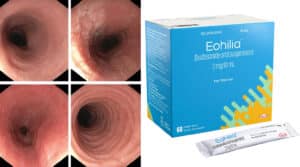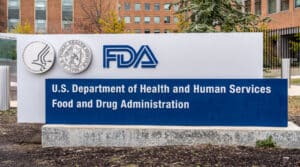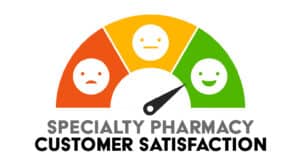The FDA approved a new infused specialty therapy last week, Zynlonta (loncastuximab tesirine-lpyl) from ADC Therapeutics, for the treatment of adult patients with relapsed or refractory large B-cell lymphoma (DLBCL) after two or more lines of systemic therapy.
It is estimated that approximately 77,240 new cases of NHL will be diagnosed, and 19,940 patients will die from NHL in 2020, despite currently available treatment. NHL is the seventh most common cancer in the United States, accounting for 4.3% of all cancers, and the eighth leading cause of cancer deaths, accounting for 3.3% of cancer-related deaths. Lymphomas are a heterogeneous group of malignancies with diverse biology, clinical behavior, and prognosis.
According to an investor presentation, ADC expects to launch Zynlonta this week at a wholesale price of $23,500 per 10 mg vial, before any discounts or rebates. This therapy is weight based and the dosing schedule for a 150-pound person would require 10 vials should the schedule last one full year. The annualized cost of therapy for that patient would tip in at $235,000.
Onco360, has been selected by ADC Therapeutics to be the exclusive specialty pharmacy partner for Zynlonta. ADC did not disclose details related to buy-and-bill vs. PBM adjudication under either the medical vs. pharmacy benefit.
FDA grants accelerated approval to loncastuximab tesirine-lpyl for large B-cell lymphoma
On April 23, 2021, the Food and Drug Administration granted accelerated approval to loncastuximab tesirine-lpyl (Zynlonta, ADC Therapeutics SA), a CD19-directed antibody and alkylating agent conjugate, for adult patients with relapsed or refractory large B-cell lymphoma after two or more lines of systemic therapy, including diffuse large B-cell lymphoma (DLBCL) not otherwise specified, DLBCL arising from low grade lymphoma, and high-grade B-cell lymphoma.
Approval was based on LOTIS-2 (NCT03589469), an open-label, single-arm trial in 145 adult patients with relapsed or refractory DLBCL or high-grade B-cell lymphoma after at least two prior systemic regimens. Patients received loncastuximab tesirine-lpyl 0.15 mg/kg every 3 weeks for 2 cycles, then 0.075 mg/kg every 3 weeks for subsequent cycles. Patients received treatment until progressive disease or unacceptable toxicity.
The main efficacy outcome measure was overall response rate (ORR), as assessed by an independent review committee using Lugano 2014 criteria. The ORR was 48.3% (95% CI: 39.9, 56.7) with a complete response rate of 24.1% (95% CI: 17.4, 31.9). After a median follow-up of 7.3 months, median response duration was 10.3 months (95% CI: 6.9, NE). Of the 70 patients who achieved objective responses, 36% were censored for response duration prior to 3 months.
Most common (≥20%) adverse reactions in patients receiving loncastuximab tesirine-lpyl, including laboratory abnormalities, are thrombocytopenia, increased gamma-glutamyltransferase, neutropenia, anemia, hyperglycemia, transaminase elevation, fatigue, hypoalbuminemia, rash, edema, nausea, and musculoskeletal pain.
The prescribing information provides warnings and precautions for adverse reactions including edema and effusions, myelosuppression, infections, and cutaneous reactions.
The recommended loncastuximab tesirine-lpyl dosage is 0.15 mg/kg every 3 weeks for 2 cycles, then 0.075 mg/kg every 3 weeks for subsequent cycles, by intravenous infusion over 30 minutes on day 1 of each cycle (every 3 weeks). Patients should be premedicated with dexamethasone 4 mg orally or intravenously twice daily for 3 days beginning the day before loncastuximab tesirine-lpyl.
View full prescribing information for Zynlonta.
This indication is approved under accelerated approval based on overall response rate. Continued approval for this indication may be contingent upon verification and description of clinical benefit in a confirmatory trial(s).
This review used the Assessment Aid, a voluntary submission from the applicant to facilitate the FDA’s assessment.
This application was granted priority review and orphan drug designation. A description of FDA expedited programs is in the Guidance for Industry: Expedited Programs for Serious Conditions-Drugs and Biologics.






